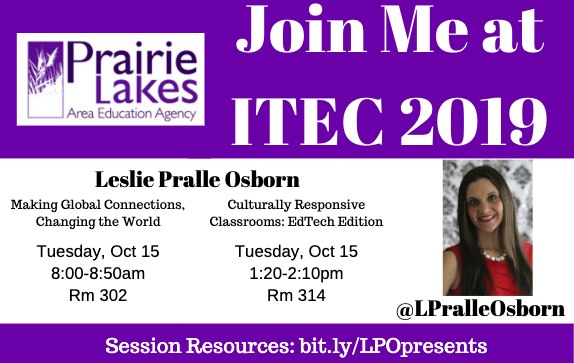This week is officially "Digital Citizenship Week" and in honor of that, I'm launching a 6-part series on how we think about not only digital citizenship, but about being a member of a global community, both online and face to face. Missed the introduction? Check it out here.
Part 1: Legitimacy
Explanation:
Following fair use and copyright law is an essential part of digital citizenship. Just as rules and laws are essential to a physical community, respect for rules and order online are key components that keep us from succumbing to digital anarchy. Teaching students the proper etiquette for attribution, how to share under creative commons, and the impact of plagiarism, are as important as teaching students to follow road signs, school rules, and city ordinances. The underlying truth is that we want our students to be fair and to respect others’ work - online or otherwise. These conversations are just as important at school as they are at home.
Components:
In the News:
A debate about plagiarism
Jury orders student to pay $675,000
Super Bowl Sneak-in
Legitimacy Challenges:
Challenge 1:
This one is for the teacher! Check out this webinar from Common Sense Media (it’s only an hour) to refresh your knowledge of fair use! After you’ve finished, reflect (blog post, perhaps?) on 2-3 key areas that you can help your students do a better job of following fair use/copyright law OR think about how you might
Challenge 2:
Check out these Fair Use Teaching Tools from the Center for Media & Social Impact - Help your students work on their next project or assignment with fair use in mind. What changes did/could you make to the activity? What conversations did/could take place with students as they work with fair use guidelines in mind? Share your revised lesson plan and/or their work!
Challenge 3:
One of the areas that students most run into copyright issues is on YouTube. We use YouTube to find songs, movies, and TV shows, upload our own work, and share information and creations with other people. One of the things we see most often is students using copyrighted songs or images in their creations. Try using Google’s YouTube lesson plan bank as a way of addressing these important issues with students. Each lesson is designed to fit within a 50 minute class, and sometimes they are significantly shorter. Teach them as a set, or on an “as needed” basis.
Following fair use and copyright law is an essential part of digital citizenship. Just as rules and laws are essential to a physical community, respect for rules and order online are key components that keep us from succumbing to digital anarchy. Teaching students the proper etiquette for attribution, how to share under creative commons, and the impact of plagiarism, are as important as teaching students to follow road signs, school rules, and city ordinances. The underlying truth is that we want our students to be fair and to respect others’ work - online or otherwise. These conversations are just as important at school as they are at home.
Components:
- Creative Credit & Copyright
- Respecting Laws and Rules
- Fairness
In the News:
A debate about plagiarism
Jury orders student to pay $675,000
Super Bowl Sneak-in
Legitimacy Challenges:
Challenge 1:
This one is for the teacher! Check out this webinar from Common Sense Media (it’s only an hour) to refresh your knowledge of fair use! After you’ve finished, reflect (blog post, perhaps?) on 2-3 key areas that you can help your students do a better job of following fair use/copyright law OR think about how you might
Challenge 2:
Check out these Fair Use Teaching Tools from the Center for Media & Social Impact - Help your students work on their next project or assignment with fair use in mind. What changes did/could you make to the activity? What conversations did/could take place with students as they work with fair use guidelines in mind? Share your revised lesson plan and/or their work!
Challenge 3:
One of the areas that students most run into copyright issues is on YouTube. We use YouTube to find songs, movies, and TV shows, upload our own work, and share information and creations with other people. One of the things we see most often is students using copyrighted songs or images in their creations. Try using Google’s YouTube lesson plan bank as a way of addressing these important issues with students. Each lesson is designed to fit within a 50 minute class, and sometimes they are significantly shorter. Teach them as a set, or on an “as needed” basis.

 RSS Feed
RSS Feed
